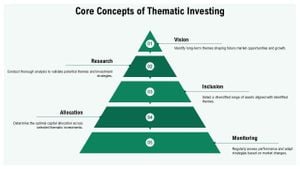On January 26, 2025, thousands of Australians participated in various Australia Day celebrations, which sparked significant attention due to concurrent protests against the commemoration of the day. While the significance of the day to many lies within celebration, numerous Indigenous groups and their supporters observe it as 'Survival Day,' marking the historical and cultural trauma inflicted upon First Nations peoples since European colonization.
According to 9News, police took measures to prevent extremist protestors from entering the central business district of Adelaide. This operation aimed to maintain order as the city prepared to host celebrations alongside the Survivors’ Day rally organized by Indigenous activists. The police intervention was seen as necessary to safeguard the public and protect the integrity of the events planned around Australia Day.
"We are here to safeguard the festivities and prevent any extremist agenda from overshadowing the real reasons why many gather on this significant day," stated the police spokesperson, reinforcing their commitment to managing the events safely.
Australia Day has traditionally been viewed as at odds with the sentiments of many Indigenous Australians, leading to the growth of 'invasion day' rallies held across major cities. These protests are intended to draw attention to the unresolved issues facing Indigenous communities and highlight their calls for recognition and reform.
This year, thousands gathered not just to partake in parades and community events but also to advocate for Indigenous rights and the acknowledgment of past injustices. Major cities like Sydney and Melbourne saw significant turnout at various rallies, with supporters carrying banners and chanting slogans demanding change.
Participation numbers at Australia Day events were impressive, with estimates indicating crowds exceeding several thousand. Festivities included citizenship ceremonies, cultural performances, and family-friendly activities. The atmosphere was reportedly celebratory, creating a dichotomy with the protests occurring simultaneously. Many attendees enjoyed traditional barbecues and assorted cultural displays, showcasing Australia’s diverse heritage.
Reflecting on the broader societal impact of Australia Day, many Australians express hope for reconciliation, as illustrated by some celebrants who were also seen supporting Indigenous rights. There is growing recognition among sectors of the population about the importance of addressing Australia's colonial past.
Authorities maintained, "We respect the right to protest but urge those participating to do so peacefully and respectfully." This call emphasized the need for dialogue instead of confrontation, aiming to achieve both celebration of Australian unity and respect for Indigenous perspectives.
Meanwhile, as reported by 9News, one Adelaide-based group attempted to disrupt local events through vandalism aimed at symbols of national pride. These actions have reignited discussions surrounding the appropriateness of Australia Day's date, with calls for either changing it or re-framing the national conversation to be inclusive of Indigenous narratives.
This year's commemorations, juxtaposed with the protests, reflect not only the diverse perspectives on national identity but also the challenges Australia faces as it seeks to move forward as one nation. High-profile figures and local leaders have begun calling for more inclusive policies and recognition of Indigenous rights, citing how the country's colonial history affects its current social fabric.
Finally, Australia Day 2025 may mark another turning point for dialogue around national identity and Indigenous representation, as more Australians engage thoughtfully with what the day signifies for everyone. Continuing this cultural reckoning is deemed as pivotal for genuine reconciliation.
It is likely the discussions sparked on this day will resonate long past the festivities, possibly influencing such events in the future as more Australians seek to align their celebrations with the nation's history and present realities.



